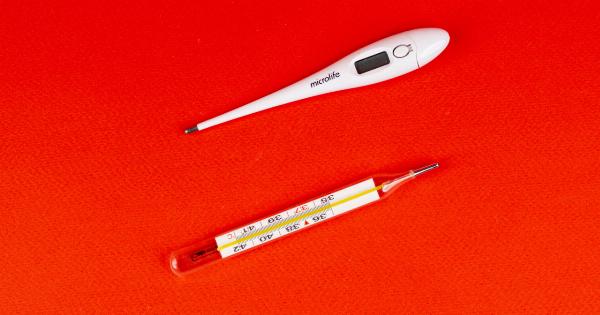Many professions require individuals to work during the night shift, whether it be in healthcare, transportation, hospitality, or emergency services.
While working through the night may seem like a necessary part of these jobs, it can have severe implications on one’s health. Our bodies are inherently programmed to follow a natural sleep-wake cycle, and disrupting this rhythm can lead to a range of health hazards.
In this article, we will explore the various health risks associated with working through the night and discuss potential solutions to mitigate these risks.
1. Sleep Disturbances
One of the most significant health hazards associated with working through the night is sleep disturbances. The human body naturally follows a circadian rhythm, which promotes sleep at night and wakefulness during the day.
Working night shifts disrupts this rhythm, making it challenging for individuals to get adequate sleep. Sleep disturbances are often characterized by insomnia, fragmented sleep patterns, and excessive daytime sleepiness.
2. Increased Risk of Chronic Diseases
Several studies have linked working through the night with an increased risk of chronic diseases. Sleep deprivation and a disrupted circadian rhythm have been associated with conditions such as obesity, diabetes, and cardiovascular diseases.
Research also suggests that night shift workers have a higher risk of developing certain types of cancer, including breast, prostate, and colorectal cancers.
3. Mental Health Issues
Working through the night can also have a significant impact on mental well-being. Night shift workers often report higher levels of stress, anxiety, and depression compared to those who work during regular hours.
The isolation and disruption of social life due to working at odd hours can contribute to feelings of loneliness and dissatisfaction, increasing the risk of mental health issues.
4. Impaired Cognitive Function
Lack of adequate sleep and disruption of the circadian rhythm can impair cognitive function and reduce overall mental performance.
Night shift workers often experience difficulties with memory, attention, and concentration, making it harder to perform tasks efficiently and safely. Impaired cognitive function can further lead to accidents and errors in workplaces that require high levels of alertness.
5. Increased Risk of Accidents
Working through the night increases the risk of accidents, both on the road and in the workplace. Fatigue resulting from sleep deprivation can impair judgment, slow reaction times, and decrease vigilance.
This combination is particularly dangerous for individuals working in fields such as transportation or operating heavy machinery. Research has shown that the risk of accidents significantly increases during the early morning hours when the body’s natural tendency for sleep is at its peak.
6. Digestive Problems
The body’s digestive system follows a specific rhythm closely tied to the sleep-wake cycle. Disrupting this rhythm can lead to various digestive issues, such as irregular bowel movements, indigestion, and gastroesophageal reflux disease (GERD).
Night shift workers may also experience weight gain due to disruptions in appetite-regulating hormones. These digestive problems can have long-term implications on overall health if not addressed.
7. Weakened Immune System
Working through the night can weaken the immune system, making night shift workers more susceptible to illnesses and infections.
Sleep deprivation and disturbances can negatively affect the immune response, impairing the body’s ability to fight off pathogens effectively. This weakened immune system can result in an increased number of sick days and reduced overall well-being.
8. Social and Familial Challenges
The social and familial challenges associated with working through the night can have a significant impact on an individual’s well-being.
Night shift workers often struggle to maintain a healthy work-life balance, as their working hours conflict with regular social activities and family obligations. The strain on personal relationships can lead to feelings of isolation, loneliness, and additional stress.
9. Long-term Sleep Disorders
Prolonged exposure to night shift work can result in the development of long-term sleep disorders. Conditions such as shift work disorder, a type of circadian rhythm disorder, can have severe implications on an individual’s quality of life.
Shift work disorder is characterized by excessive sleepiness during work hours and insomnia during sleep hours, further exacerbating the negative effects of night shifts on health.
10. Strategies to Mitigate the Health Hazards
While completely avoiding night shift work may not always be feasible, there are strategies that individuals and employers can implement to mitigate the health hazards associated with working through the night:.
1. Implement a well-designed shift schedule that allows for adequate rest and recovery.
2. Create a sleep-friendly environment by maintaining a cool, dark, and quiet bedroom during the day.
3. Establish a regular sleep routine, even on non-working days, to improve sleep quality and quantity.
4. Incorporate short naps during breaks to help combat excessive sleepiness and improve alertness.
5. Promote healthy lifestyle habits, including regular exercise, a balanced diet, and stress management techniques.
6. Encourage open communication and support systems within the workplace to address any concerns or difficulties faced by night shift workers.
Conclusion
Working through the night can have severe health hazards, ranging from sleep disturbances and increased risk of chronic diseases to mental health issues and impaired cognitive function.
It is crucial for individuals and employers to prioritize the well-being of night shift workers and implement strategies to mitigate these risks. By recognizing and addressing the health hazards associated with night shift work, we can strive towards creating a healthier and more productive work environment.































